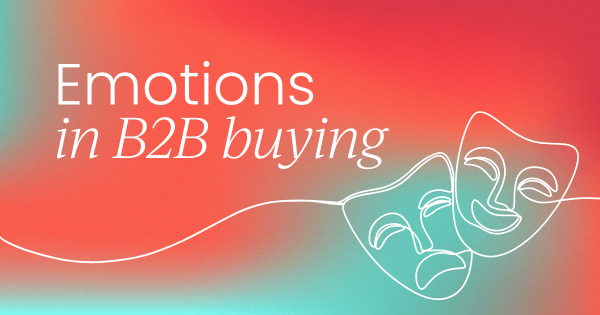This article is based on Mike Berger’s brilliant talk at the Product Marketing Summit in Seattle. As a PMA member, you can dive into the complete recording here.
Let’s start with one of my favorite quotes:
"To truly wield influence, a product marketer must first master the art of deeply understanding their buyers."
Ever come across that one before? No? That’s probably because I just made it up. Still, it’s something I believe wholeheartedly.
If you, as a product marketer, don’t have a deep understanding of the customer, everything else you do is on shaky ground. Your messaging, positioning, copy, campaign targeting, and overall marketing effectiveness – all of it relies on that foundational understanding of the customer.
If you miss the mark on this, everything else crumbles. The company’s performance suffers, and in the end, it’s on you for not understanding the customer. See how this snowballs? It’s not hard to imagine the chaos that follows.
None of us want to end up in an office brawl (I did witness one once, but that’s a story for another day). So, how do we make sure we’re truly tuned into our customers’ minds and avoid the chaos?
Let’s dive into some strategies that’ll help us get there.
What buyers are thinking: Assumptions vs. reality
We need to be part of the conversation our prospects or buyers are already having in their heads. They wake up thinking about the problems they need to solve or the challenges they’re facing. If we can join that conversation when it’s happening, they’re far more likely to engage with us. It’s about meeting them where they are and making them feel like we’re here to help.
This approach makes sense intuitively, right? We know that buyers aren’t waking up thinking, “I really need an all-in-one AI-powered platform!” Yet, if you look at many websites today, that’s the message they’re sending.
In reality, the conversation in buyers' heads is probably not the one we assume it to be – and that’s largely because we tend to make a critical assumption as marketers: that buyers act rationally.
The surprising emotional connection to B2B brands
Most B2B personas crafted by product marketers focus on rational factors. However, in reality, buying decisions are usually based on emotional factors. This phenomenon isn’t limited to B2C; research shows that B2B buyers are influenced by emotions too.
One particularly compelling study comes from the B2B Institute, a research arm of LinkedIn. They found that companies with campaign strategies that leaned into emotional messaging rather than purely rational appeals performed seven times better in terms of long-term growth and success. A 7x improvement! That’s the power of emotional connection in B2B marketing.
It’s clear that to truly understand and engage our buyers, we need to address the emotions that influence their decisions, not just the logic behind them.
The power of loss aversion in B2B buying
Another study, done back in 2013 by Google and CEB (now part of Gartner), revealed something unexpected: B2B buyers feel a stronger emotional connection to B2B brands than to B2C brands.
It’s surprising, right? I mean, who’s getting emotional about Oracle or Cisco? Apple or Nordstrom, sure – but Oracle? Accenture? Not exactly brands you’d associate with warm fuzzies.
The reason for the strong emotional connection comes down to high stakes. In the B2B world, the risks are much greater than in B2C.

Think about it – if you’re buying a TV and it turns out to be a bad choice, it’s no big deal; you can return it or live with it. It’s unlikely to have a serious impact on your life, let alone your career.
Now imagine you’re responsible for choosing your company’s sales enablement platform, and it goes south. Sales reps are frustrated, the sales leader is complaining, and you’re in the hot seat. It can create ripple effects that reach your CMO – or worse, your own career stability.
For some roles, the stakes are even higher. Think of a CIO selecting an ERP system for a 10,000-person company. If that decision flops, it could cost them their job. But on the flip side, if the choice is successful, it can be a huge career booster.
That means we need to tap into a phenomenon called loss aversion. People are more motivated to avoid pain than to seek gain, which is why pain-focused messaging (like the “aspirin” versus “vitamin” approach) works so well.
Understanding how buying decisions are made
We usually associate emotions with quick, impulsive buys, so you might think that in complex B2B sales with long cycles, the process would be more rational. But as it turns out, that’s not always the case. Even in high-stakes, lengthy sales cycles, emotions are a powerful driver.


















 Follow us on LinkedIn
Follow us on LinkedIn




.svg?v=aaaf5e025a)